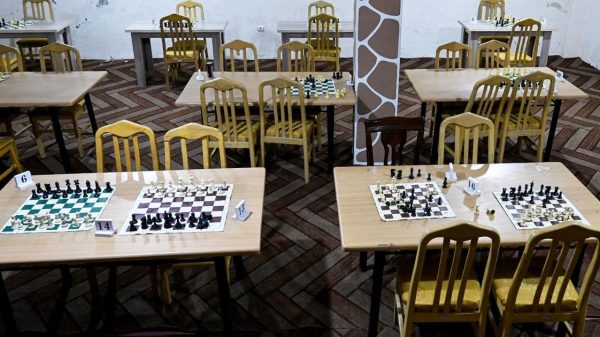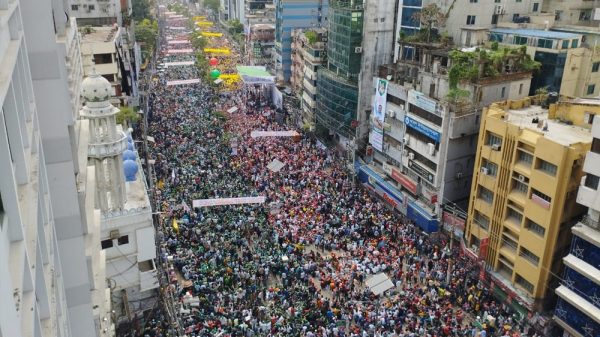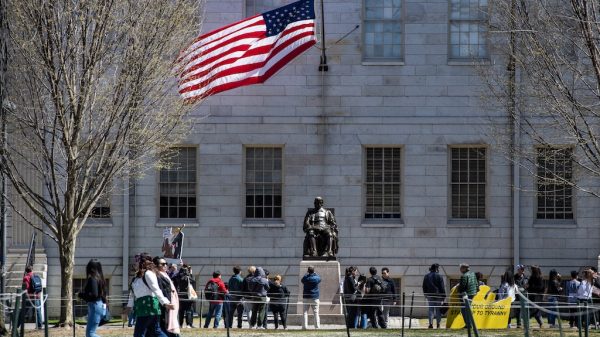When a Covid-19 outbreak hit Al Falah Police Station in Abu Dhabi, the police didn’t halt operations – they moved them. “We transferred all operations to Zakher Police Station,” said Lt Col Ahmed Al Ghfeli. “We informed the public and placed signs in front of the affected station. The exact same services continued in Zakher.”
It was one of many real-world tests faced by the Abu Dhabi Police’s business continuity strategy – a framework that ensures critical police operations never stop, even during emergencies.
Similarly, when torrential rains disrupted normal life in Abu Dhabi last year, the police force proved its readiness by ensuring that critical operations continued without pause.
“Decision-making must never stop,” he said. “Even when our personnel were impacted by crises, we ensured zero disruption to public services.”
Speaking at the Emergency, Crises and Disasters Management Centre Abu Dhabi’s annual forum, Lt Col Al Ghfeli gave a rare behind-the-scenes account of how the police leadership planned, implemented, and evolved their crisis response systems. The forum focused on standards that ensure business continuity and flexibility during various emergencies.
“The Covid-19 pandemic was a true test of our business continuity system,” he said. “Thanks to our systems, not a single service was interrupted.”
Abu Dhabi Police has identified 338 “vital operations” that must not stop, even in the most extreme scenarios. These include patrols, prisoner transfers, and emergency response protocols. According to Al Ghfeli, more than 250 locations across the emirate, including Dalma Island, have been audited over three years to assess their risk exposure and continuity needs. “We don’t focus on every task — only the operations that are truly vital,” he said.
A significant part of Abu Dhabi Police’s resilience comes from its investment in cutting-edge technology. Lt Col Al Ghfeli highlighted how drones have been deployed to relay real-time visuals of emergency scenes, especially when visibility is poor or access is limited. “This helps commanders make faster, more informed decisions from the operations room,” he explained.
Another innovation is a unified crisis management platform, developed in-house, that connects all departments and key government partners. It warns operators when emergency response in one area risks leaving another under-resourced. “If six patrols are dispatched to a fire in Khalidiya, the platform alerts us to reinforce coverage in that zone,” said Lt Col Al Ghfeli.
This digital infrastructure includes an electronic documentation system, archiving all crisis plans, resources, and alternative locations for each department. The Ministry of Interior and other federal agencies now rely on the platform for their own planning.
According to the force, crises don’t only strain infrastructure – they take a toll on people. Recognising the psychological impact of the pandemic on frontline officers, Abu Dhabi Police introduced structured mental health support. “Some employees were hesitant to report for duty,” Lt Col Al Ghfeli noted. “We had to step in and support them psychologically.”
The force worked with the Department of Health and internal wellness units to deploy mental health specialists during peak Covid periods. This initiative has now been formalised as part of Abu Dhabi Police’s long-term crisis adaptation policy.
In 2021, Abu Dhabi Police became the first law enforcement agency in the world to receive institutional resilience certification. The audit was based on UAE Standard 7000 as well as international benchmarks. “We were assessed during the height of Covid,” Lt Col Al Ghfeli recalled. “Our performance during that time validated our systems.”
The certification process also pushed the force to create its own internal resilience standard – dubbed the ‘Police Standard for Crisis Continuity’ – which is now used to evaluate all departments annually. High-performing units are recognised and awarded.
Additionally, Abu Dhabi Police mandates that every officer be trained on business continuity. As of early 2025, more than 9,000 staff have undergone certified training developed in partnership with the Saif Bin Zayed Police Academy. “Every field officer must know the answers to three questions: What is the continuity plan for your role? What is your backup location? And when does that plan activate?,” Lt Col Al Ghfeli explained.
“These answers can be found in the Golden Leader Decision System in the operations room — one of the modern tools we now use,” he explained. “We have trained more than 7,600 staff in previous years, and over 1,600 in 2024 alone — nearly 9,000 since the initiative began.”
“We cannot reach every officer in the command because some are on shift rotations or patrol operations,” he added. “But what matters is that each field officer knows their business continuity plan, their alternative site, and when that plan is activated.
“What are the alternatives for your current role? Every officer in the field must know these and how to apply them.”
Abu Dhabi Police also cooperates closely with external partners, including Civil Defence and other government agencies. Joint drills have been conducted over the past years to strengthen coordination. During the heavy rains last year, for example, some operations were affected. “We analysed the risks and developed response mechanisms to ensure continuity,” Lt Col Al Ghfeli said.
He also pointed to the Early Warning System implemented during past events, which is now regularly drilled to ensure a timely response and continued operations. “Some patrols respond to emergencies, while others continue with daily duties,” he said.
The force also works to enhance community awareness through workshops and outreach efforts. “We hold sessions in Al Gharbia’s majlis in partnership with local councils, and we conduct awareness programmes in schools in cooperation with the Ministry of Education,” he added.
Source: Khaleej Times





























Leave a Reply